Electric car and SUV sales hit highest level in FY2025: 107,500 units
March 2025 with best-ever monthly retail sales of over 12,300 units wrapped off a record fiscal for electric passenger vehicles. Sales in FY2025 rose 18% to surpass the 100,000-units mark for the first time. Impacted by new competition, market leader Tata Motors saw its EV share fall to its lowest of 53% even as JSW MG Motor’s share doubled to 28 percent. Luxury EV sales increased by 14% to 3,291 units with Mercedes-Benz India being the standout OEM with 101% growth.
Three months after it registered record calendar year retail sales of 99,715 units in 2024, the Indian electric passenger vehicle industry has now posted its best-ever retails for a fiscal year. In FY2025, cumulative sales of zero-emission cars, SUVs and MPVs scaled a new high of 107,541 units, an increase of 18% year on year (FY2024: 91,320 units). FY2025 also marks the first time that this segment has achieved and surpassed the 100,000-units milestone.
Along with the two volume segments of electric two- and three-wheelers, the growing shift to e-mobility in the passenger vehicle segment is visible on Indian roads in the form of green-number-plated SUVs, sedans and hatchbacks. Despite the higher initial price of an EV compared to its petrol or diesel brethren, an increasing number of PV buyers are preferring to put their money on a wallet-friendly EV. What has helped accelerate demand is the wider product choice available as also the increasing availability of charging stations, albeit more needs to be done on the EV charging infrastructure front. Between 2015 and 2024, nearly 250,000 electric PVs have been sold in India.
 Best-ever monthly sales of 12,347 units in March 2025 helped the electric passenger vehicle industry drive past the 100,000-units milestone for the first time.
Best-ever monthly sales of 12,347 units in March 2025 helped the electric passenger vehicle industry drive past the 100,000-units milestone for the first time.
As per the Vahan-sourced retail sales data for FY2025 (shown above), the second half of FY2025 proved to be the growth accelerator. The first half of the fiscal, which had three months of sales decline, saw total sales of 44,114 units, up 3% YoY. The October 2024 to March 2025 period, with 63,427 units was a handsome 31% increase, with March 2025 (12,347 units) and the festival-laden October 2024 (11,431 units) witnessing five-figure sales. This period also saw the launch of the MG Windsor EV, whose success has added much tailwind to the segment and also impacted the market leader, Tata Motors. Let’s take a detailed look at the movers and shakers in the fiscal year that was.
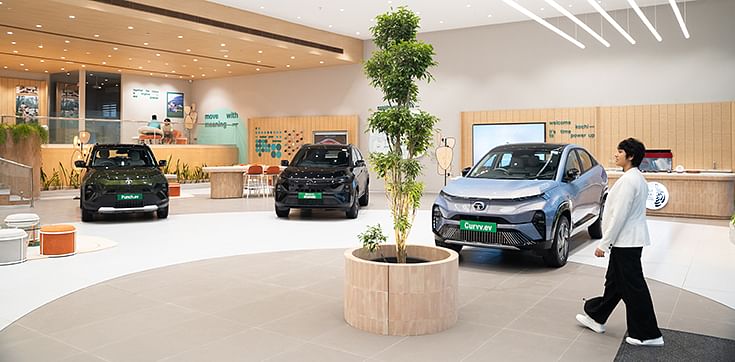 TATA MOTORS
TATA MOTORS
FY2025: 57,581 units, down 11% YoY. Market share: 53%
FY2024: 64,441 units. Market share: 70% As in CY2024, FY2025 proved to be a torrid year for Tata Motors’ EVs with the longstanding e-PV market leader strongly impacted by the growing competition, particularly from JSW MG Motor India and the Windsor EV. In FY2025, as per Vahan data, Tata Motors sold 57,581 EVs, down 11% YoY (FY2024: 64,441 units). This performance translates into its market share dropping by a sharp 17% to 53% from 70% in FY2024. This is the lowest market share for Tata Motors yet in the EV segment.
As in CY2024, FY2025 proved to be a torrid year for Tata Motors’ EVs with the longstanding e-PV market leader strongly impacted by the growing competition, particularly from JSW MG Motor India and the Windsor EV. In FY2025, as per Vahan data, Tata Motors sold 57,581 EVs, down 11% YoY (FY2024: 64,441 units). This performance translates into its market share dropping by a sharp 17% to 53% from 70% in FY2024. This is the lowest market share for Tata Motors yet in the EV segment.
The company continues to have the largest e-PV portfolio in India (for a mass-market carmaker) comprising the Nexon EV, Tigor EV, Tiago EV, Xpres-T (for fleet buyers), Punch EV and the Curvv EV. However, compared to the past couple of years when Tata EVs had barely any competition, there has been a spurt in the number of new EVs available in the market which has led to the product basket expanding sizeably and Tata Motors’ sales being impacted.
The Punch EV and the Curvv EV were the only new products from Tata Motors in the past fiscal, both built on the new Gen 2 architecture called Acti.EV. This architecture will also underpin a range of new Tata SUVs including the upcoming Harrier EV and Safari EV.
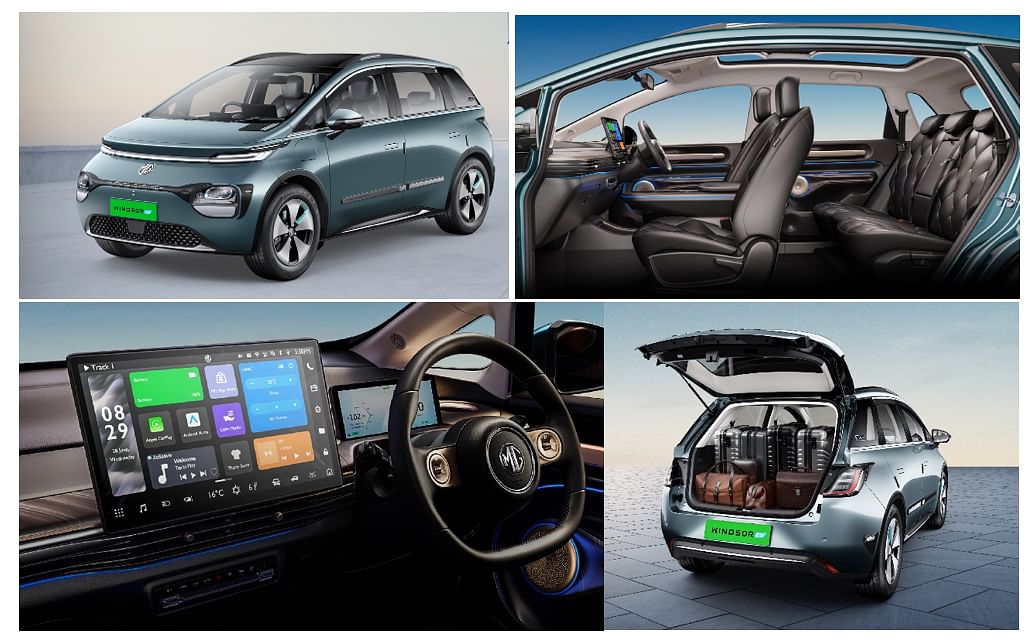 JSW MG MOTOR INDIA
JSW MG MOTOR INDIA
FY2025: 30,153 units, up 158% YoY. Market share: 28%
FY2024: 11,681 units. Market share: 13%
 It often takes a smart product to shake the market and that’s just what the MG Windsor EV, JSW MG Motor India’s third electric vehicle after the ZS EV and Comet EV, has done. Launched on September 21, 2024, surging consumer demand for the eco-friendly MPV has hugely accelerated sales (as seen in the data table above) from October onwards.
It often takes a smart product to shake the market and that’s just what the MG Windsor EV, JSW MG Motor India’s third electric vehicle after the ZS EV and Comet EV, has done. Launched on September 21, 2024, surging consumer demand for the eco-friendly MPV has hugely accelerated sales (as seen in the data table above) from October onwards.
FY2025’s sales of 30,153 units are a handsome 158% YoY increase (FY2024: 11,681 units), which translates into an additional 18,472 units. As a result, the company’s EV market share has more than doubled to 28% from 13% in FY2024 – an increase of 15% YoY. In sharp contrast, Tata Motors’ EV market share has dropped by 17% YoY.
Total JSW MG Motor retails of 21,829 EVs in the last six months of the fiscal are 72% of the entire FY2025 total. Put this down to the Windsor EV effect – the 15,000th model rolled out of the Halol, Gujarat factory on February 19, 2025 – barely five months after it was launched. Priced at Rs 13.49 lakh (ex-showroom) and billed as India's first intelligent Crossover Utility Vehicle (CUV), the Windsor EV combines features of both a sedan and an SUV. What has also drawn buyers is the innovative Battery-as-a-Service (BaaS) program for MG EVs. This flexible ownership eliminates the upfront cost of the battery, enabling customers to pay only for its usage. This subscription model lowers the per-kilometre expense significantly reducing the initial acquisition cost to ensure an economical ownership experience.
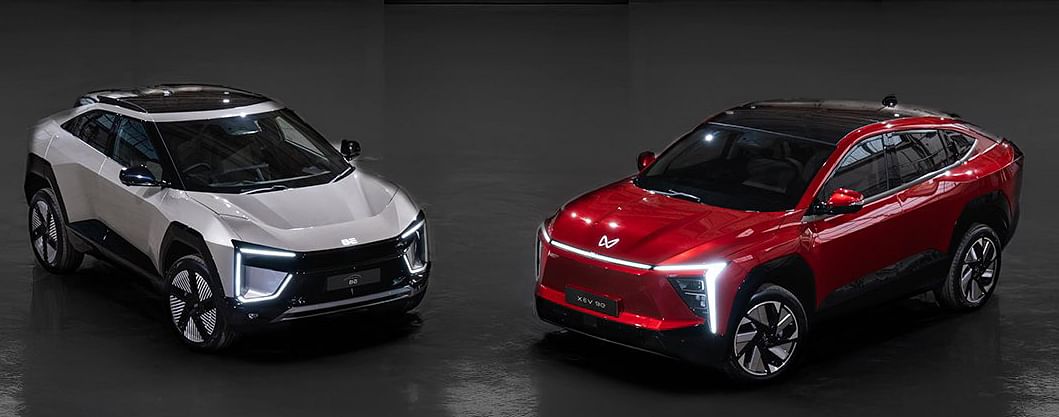 MAHINDRA & MAHINDRA
MAHINDRA & MAHINDRA
FY2025: 8,180 units, up 34% YoY. Market share: 7.60%
FY2024: 6,124 units. Market share: 6.70% Mahindra & Mahindra, the third-ranked EV OEM, sold 8,180 electric SUVs in FY2025, up 34% on FY2024’s 6,124 units. This sees the company’s market share increase marginally to 7.60% from 7% a year ago. While the bulk of the sales comprise the XUV400, March 2025 with 1,944 e-SUVs was its best month in FY2025. This is the result of commencement of customer deliveries of the recently launched BE 6 and XEV 9e, the first of its ‘Born Electric’ SUVs built on the INGLO (Intelligent Electric Global) platform.
Mahindra & Mahindra, the third-ranked EV OEM, sold 8,180 electric SUVs in FY2025, up 34% on FY2024’s 6,124 units. This sees the company’s market share increase marginally to 7.60% from 7% a year ago. While the bulk of the sales comprise the XUV400, March 2025 with 1,944 e-SUVs was its best month in FY2025. This is the result of commencement of customer deliveries of the recently launched BE 6 and XEV 9e, the first of its ‘Born Electric’ SUVs built on the INGLO (Intelligent Electric Global) platform.
 BYD INDIA
BYD INDIA
FY2025: 3,401 units, up 90% YoY. Market share: 3%
FY2024: 1,788 units. Market share: 2% BYD India is another OEM which has done well in FY2025. The company, which sells the all-electric Atto 3 SUV, Seal sedan, eMax 7 MPV and the recently launched Sealion 7 SUV, maintains its No. 4 rank with total sales of 3,401 units, up 40% YoY (FY2024: 1,788 units). October 2024, which saw 398 BYD EVs sold, was its best month ever since the Chinese OEM began e-PV sales in India. March 2025 with 396 units was just two units shy of that. In early March 2025, BYD India launched the upgraded Atto 3 and Seal.
BYD India is another OEM which has done well in FY2025. The company, which sells the all-electric Atto 3 SUV, Seal sedan, eMax 7 MPV and the recently launched Sealion 7 SUV, maintains its No. 4 rank with total sales of 3,401 units, up 40% YoY (FY2024: 1,788 units). October 2024, which saw 398 BYD EVs sold, was its best month ever since the Chinese OEM began e-PV sales in India. March 2025 with 396 units was just two units shy of that. In early March 2025, BYD India launched the upgraded Atto 3 and Seal.
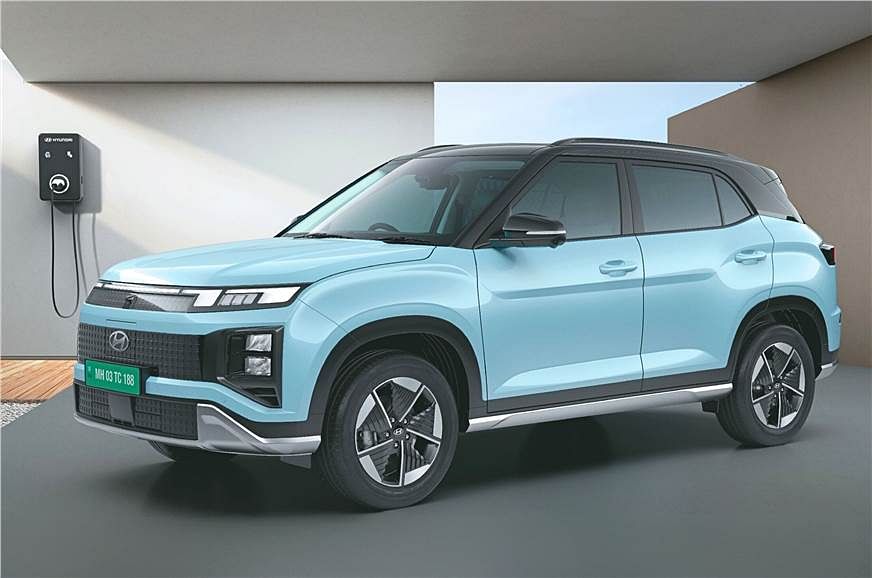 HYUNDAI MOTOR INDIA
HYUNDAI MOTOR INDIA
FY2025: 2,410 units, up 31% YoY. Market share: 2%
FY2024: 1,843 units. Market share: 2% Having discontinued the Kona and left with only the Ioniq 5, Hyundai Motor India saw tepid two-figure sales in the first nine months of the fiscal year. Demand grew into three figures only at the fag end of the fiscal. Put this down to the market launch of the Creta Electric, the zero-emission avatar of the Creta, the best-selling midsize SUV in India, in January. This burst of sales in the last three months of FY2025 has helped take Hyundai ahead of PCA Motors in the EV OEM ladder board.
Having discontinued the Kona and left with only the Ioniq 5, Hyundai Motor India saw tepid two-figure sales in the first nine months of the fiscal year. Demand grew into three figures only at the fag end of the fiscal. Put this down to the market launch of the Creta Electric, the zero-emission avatar of the Creta, the best-selling midsize SUV in India, in January. This burst of sales in the last three months of FY2025 has helped take Hyundai ahead of PCA Motors in the EV OEM ladder board.
It’s early days yet for the Creta Electric, which is expected to deliver the goods to the Korean automaker in FY2026. Meanwhile, the recently listed company has outlined strategic EV launch game-plan which comprises four models including a mas-market model.
 PCA MOTORS / CITROEN INDIA
PCA MOTORS / CITROEN INDIA
FY2025: 1,962 units, down 3% YoY. Market share: 2%
FY2024: 2,033 units. Market share: 2% Sixth-ranked PCA Motors (Citroen India) has witnessed a sales decline in FY2025. The company sold 1,962 units, down 3% on year-ago retails (FY2024: 2,033 units), which results in its market share reducing to 1.82% from 2.22% a year ago.
Sixth-ranked PCA Motors (Citroen India) has witnessed a sales decline in FY2025. The company sold 1,962 units, down 3% on year-ago retails (FY2024: 2,033 units), which results in its market share reducing to 1.82% from 2.22% a year ago.
After hitting best-ever monthly sales of 389 units in September 2024, and following it up with 257 units in October, retail sales fell sharply to 82 units in November and 78 units in December 2024. Numbers rose again in January 2025 (274 units) but have fallen to 60 and 46 in February and March respectively. The company, which retails the Citroen e-C3 (electric avatar of the C3 hatchback), has a fair number of bookings from EV fleet operators. The eC3 has a 29.2kWh battery pack and an ARAI-claimed range of 320km.
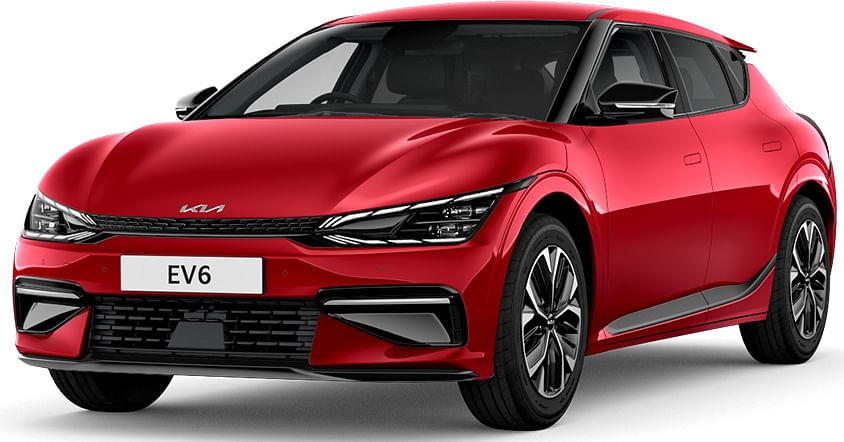 KIA INDIA
KIA INDIA
FY2025: 414 units, down 4% YoY. Market share: 0.38%
FY2024: 432 units. Market share: 0.47%
 At 414 units, Kia India sold 18 fewer EVs in FY2025 compared to FY2024’s 432 units. Till September 2024, the company had only a single EV in the market – the EV6. In October, the company launched the six-seater EV9 SUV, priced at Rs 1.3 crore. The EV9 is brought into India through the CBU route and is now Kia’s flagship offering in the country, sitting above the EV6. The EV9 has no direct rivals in India, but it gives some competition to luxury electric SUVs such as Mercedes EQS SUV, EQS SUV, BMW iX and Audi Q8 e-tron.
At 414 units, Kia India sold 18 fewer EVs in FY2025 compared to FY2024’s 432 units. Till September 2024, the company had only a single EV in the market – the EV6. In October, the company launched the six-seater EV9 SUV, priced at Rs 1.3 crore. The EV9 is brought into India through the CBU route and is now Kia’s flagship offering in the country, sitting above the EV6. The EV9 has no direct rivals in India, but it gives some competition to luxury electric SUVs such as Mercedes EQS SUV, EQS SUV, BMW iX and Audi Q8 e-tron.
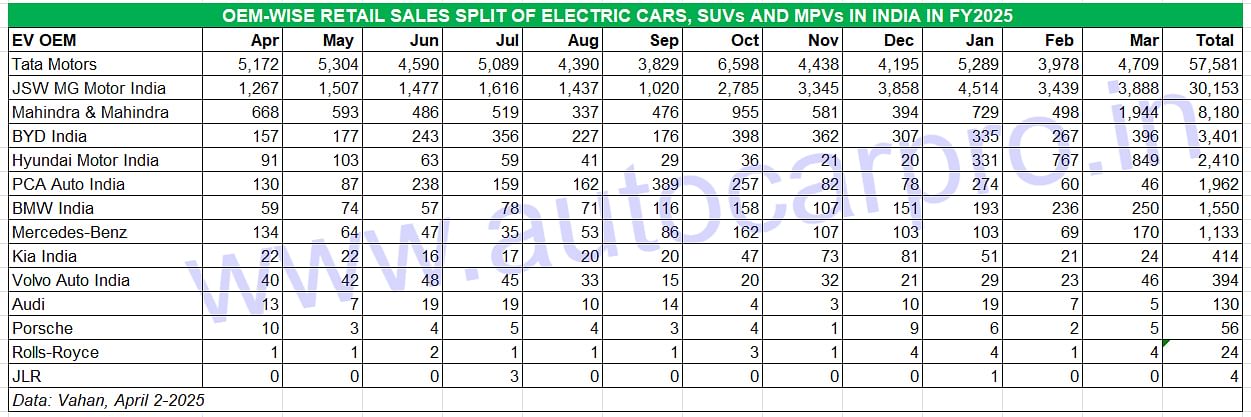
LUXURY EV MANUFACTURERS SELL 3,291 EVs IN FY2025, MERCEDES-BENZ SALES DOUBLE


In tandem with the overall trend in the electric passenger vehicle market, consumer demand for luxury electric cars, sedans and SUVs rose by 14% YoY to 3,291 units in FY2025. This translates into an additional 408 units year on year (FY2024: 2,883 units). As per Vahan data, four of the seven luxury carmakers saw their sales decline. The three OEMs which registered growth were market leader BMW India, Mercedes-Benz India and Rolls-Royce.
BMW India, the luxury EV market leader in FY2024 (1,424 units), has held onto its crown in FY2025 with sale of 1,550 units – an additional 124 units – and 9% YoY growth. This translates into a market share of 47% in this sub-segment in FY2025 as compared to 49% in FY2024.
Mercedes-Benz India has had a stellar fiscal. With 1,133 units and handsome 101% YoY growth, the company has doubled its retail sales YoY in FY2025. As a result, its market share has jumped to 34% from 20% in FY2024.
Volvo India sold 394 EVs, down 35% on the 606 units in FY2024. This performance sees its market share reduce sharply to 12% from 21% in FY2024. And its ranking has dropped to No. 3 from No. 2 a year ago.
Audi India, which has posted retail sales of 130 units in FY2024, saw demand drop 21% YoY (FY2024: 165 units). This means its market share is now 4% compared to 6% in FY2024.
While German sportscar maker Porsche sold 56 EVs in FY2025, down 51% on its FY2024 sales of 114 EVs, Rolls-Royce has had a cracker of a fiscal with sale of 24 Spectres which is billed as the Rolls-Royce of EVs with its unmatched refinement and luxury.
In FY2025, zero-emission luxury vehicles accounted for 3% of the overall Indian electric passenger vehicle market (3,291 units) compared to 3% in FY2024.
ELECTRIFYING FY2026 IN THE OFFING
April 2025 has seen the dawn of FY2026, which promises to be a humdinger of a year in terms of new product launches in the EV market. The new fiscal will see leading carmakers enter the EV market in India as well as some existing players expand their portfolio.
Among the most-awaited launches is that of the Maruti Suzuki e Vitara. There is a lot riding on Maruti’s first EV – both in the domestic and export markets. India has been designated as the global manufacturing hub for the e Vitara, which is Suzuki’s first global strategic BEV and will be shipped to many markets including Europe and Japan. With an estimated range of over 500km, Maruti Suzuki is pitting the e Vitara against the Hyundai Creta Electric, Tata Curvv EV and Mahindra BE 6.
The year 2025 will see leading car manufacturers enter the EV space, while some are going to expand their lineup.
Toyota Kirloskar Motor, which has seen huge success with sales of its four rebadged Maruti Suzuki models, is expected to launch the Urban Cruiser EV at the end of 2025. This Toyota version of the Suzuki e Vitara will, like its Maruti sibling, gun for the compact e-SUV market.
Tata Motors, which has had a torrid FY2025, will be looking to regain momentum in FY2026 with the launch of the Harrier EV and Sierra EV. Showcased in near-production form last year, the Harrier EV will offer 500km of range and will be the company’s first EV to sport an AWD setup. The Sierra EV, which will also be built on the same Acti.EV platform that has spawned the Punch EV, Curvv EV and Harrier EV, is likely to also be introduced.
Mahindra & Mahindra, which now has two new e-SUVs in the market in the form of BE 6 and XEV 9e, will introduce the XEV 7e and XEV 9e. There will also be the XUV 3XO EV, the all-electric avatar of the high-selling XUV 3XO squarely targeted at the Tata Nexon EV.
Kia India’s Carens MPV, which has sold over 200,000 units since its launch in February 2022, is to be joined by an all-electric sibling by the end of this year. Kia Corporation, which has outlined a target of selling 1.6 million EVs annually by 2030, has plans to build 15 new EVs globally including the Carens EV for India. That’s not all. The Kia Syros compact SUV, which has quickly grown into the company’s third highest sales contributor to FY2025 sales, will also get an electric sibling.
ALSO READ: EV sales grow 17% to 1.96 million in FY2025, 2- and 3Ws, cars and SUVs hit new highs
Two-wheeler share of EV sales in India grows to 58% in FY2025
RELATED ARTICLES
Maruti Grand Vitara is fastest midsize SUV to 300,000 sales
Launched on September 26, 2022, the Maruti Grand Vitara, which was the fastest among midsize SUVs to the 100,000, 200,00...
Ola Electric holds onto lead over TVS and Bajaj in first three weeks of April
Having taken the lead early in April, Ola has sold 12,546 units in the April 1-21 period, just 84 units ahead of TVS iQu...
TVS iQube and Bajaj Chetak sales cross one million units since launch
Combined sales of the TVS iQube and Bajaj Chetak electric scooters, which were launched in January 2020, have surpassed ...






 03 Apr 2025
03 Apr 2025
 10689 Views
10689 Views





 Autocar Professional Bureau
Autocar Professional Bureau




